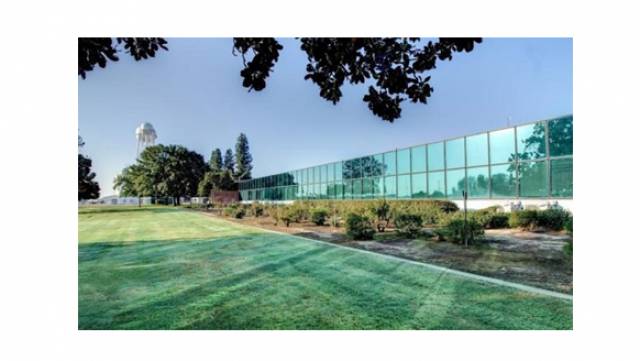Vitro Architectural Glass’ Fresno, California, float glass manufacturing plant is celebrating its 50th anniversary
Vitro Architectural Glass’ Fresno plant uses oxy-fuel furnace technology, reducing natural gas consumption by 15%, carbon emissions by 10% and NOx emissions by more than 50%.
Vitro Architectural Glass (formerly PPG Glass) has announced that its Fresno, California, float glass manufacturing plant is celebrating its 50th anniversary.
The milestone comes as the facility implements new technology to enhance the environmental performance of the glass-manufacturing process for Starphire Ultra-Clear® glass and other residential and commercial flat glass products.
The process, which involves injecting ammonia into the facility’s oxygen-fueled (oxy-fuel) glass furnace, will reduce nitrogen oxide (NOx) emissions, making it one of the lowest NOx-emitting float glass plants in the United States.
Using cleaner, more environmentally advanced processes in its operations has been a hallmark of the plant’s efforts to manufacture glass more efficiently and reduce its carbon footprint.
In 2000 Fresno became the first flat glass manufacturing plant in the company to install and operate an oxy-fuel float tank. At the time, the facility was the lowest NOx-emitting plant in the United States.
In 2014 the float glass tank was relined and a new furnace was installed. That summer, the plant started manufacturing Starphire Ultra-Clear glass with oxy-fuel furnace technology. Starphire glass is believed to be the only ultra-low-iron glass in the world manufactured on an oxy-fuel float glass line.
Operated with proprietary Vitro-owned and patented technology, the furnace uses oxygen to combust sand, silica and other raw materials, reducing natural gas consumption by 15%, carbon emissions by 10% and NOx emissions by more than 50% compared to traditional gas/air-fired glass furnaces. The Fresno plant is one of only six flat glass production facilities worldwide to use this process in its manufacturing operations.
The Fresno plant was acquired by Vitro Glass in 2016 when the company purchased PPG’s flat glass manufacturing and glass coatings operations in the United States and Canada.
Other facilities gained in the acquisition include production sites in Salem, Oregon; Carlisle, Pennsylvania; and Wichita Falls, Texas. There also are four distribution and fabrication facilities located across Canada, and a research-and-development center located in Harmar, Pennsylvania, near Pittsburgh.
The clear glass and Starphire glass produced at the Fresno plant meet the requirements of the Cradle to Cradle Certified™ Products Program, a globally recognized standard for environmentally progressive, high-performance products.
Vitro Glass, which was the first US glass manufacturer to have its products recognized by the program, currently has the largest collection of Cradle to Cradle Certified glass products in the industry.
The Fresno plant, which employs approximately 150 people, produces 600 tons of standard clear and Starphire Ultra-Clear glass per day, ranging in thickness from 2.5 to 12 millimeters, for the residential and commercial construction markets.
The facility continues to explore ways to improve efficiency and be an environmental steward, according to Javier Gutierrez, plant manager.
“We’ve made excellent progress improving our furnace operation, and we’ve made numerous upgrades throughout the plant to ensure that we’re safe, productive and efficient,” explained Gutierrez. “We’re committed to continually looking at how to improve our processes and develop increasingly sustainable manufacturing methods so that Vitro Glass products have the least impact on the environment.”




